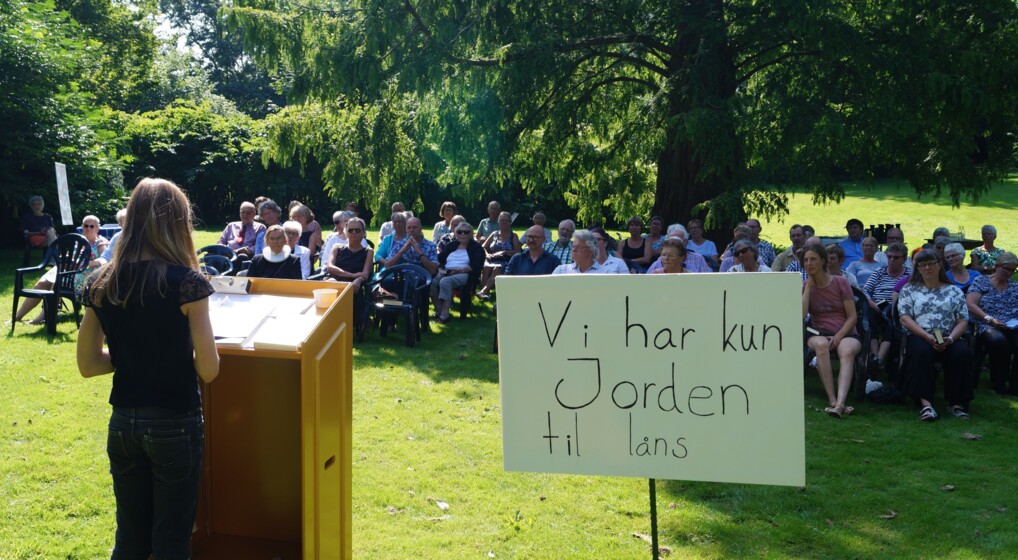The church’s practical approach to climate change
“It is very uplifting to see the commitment, the strong desire and wealth of ideas in the Danish church, when it comes to the green agenda,” says Joy Mogensen, minister of Ecclesiastical Affairs.

At a meeting about climate change in the church. "The Earth is not ours to keep. We have only borrowed it ", the sign says. Photo:folkekirken.dk.
Many Danish churches have involved themselves in climate and environmental issues. At a bishops’ meeting in January 2020 it was decided that The Evangelical-Lutheran Church in Denmark must live up to the national goal of decreasing CO2-emmisions by 70% by 2030. Nobody knows how much the 2400 churches, the clergy houses, the parish houses, the 11000 acres of land and all the church activities are affecting climate change. It has never been surveyed. But now both government and church have put climate crisis and green transition on the agenda.
Last year The development fund of the Danish Church financed different green projects to an amount of 2.2 million Kroner, (appr. 300,000 Euros) and it resulted in many new local initiatives.
The minister of ecclesiastical affairs Joy Mogensen is very satisfied with the amount of green projects in Danish churches and said the following: “It is very uplifting to see the commitment, the strong desire and wealth of ideas in the Danish church, when it comes to the green agenda,” Joy Mogensen said according to The Ministry of Ecclesiastical Affairs.
The deanery of Favrskov has also committed themselves to the goal of 70% reductions in the emissions of CO2. They have made a report that states they emit 856 tons of CO2 annually. In the report 36 possible actions to reduce emissions are listed and if they are all done it would be possible to reduce the annual amount of CO2 to 257 tons, corresponding to the 70% reduction. This is the goal of the deanery.
“To take care of the climate is not about big words and long sermons … It is something very practical” said Henrik Wigh Poulsen, bishop in the diocese of Aarhus, who hopes that the effort being made in Favrskov can inspire other churches across Denmark.
Joy Mogensen informs that the ministry of ecclesiastical affairs is in the process of establishing network groups that exchange experiences regarding green transition and climate-friendly initiatives and a green centre with climate expertise that can guide and inspire churches to find new solutions to go forward with the green agenda.